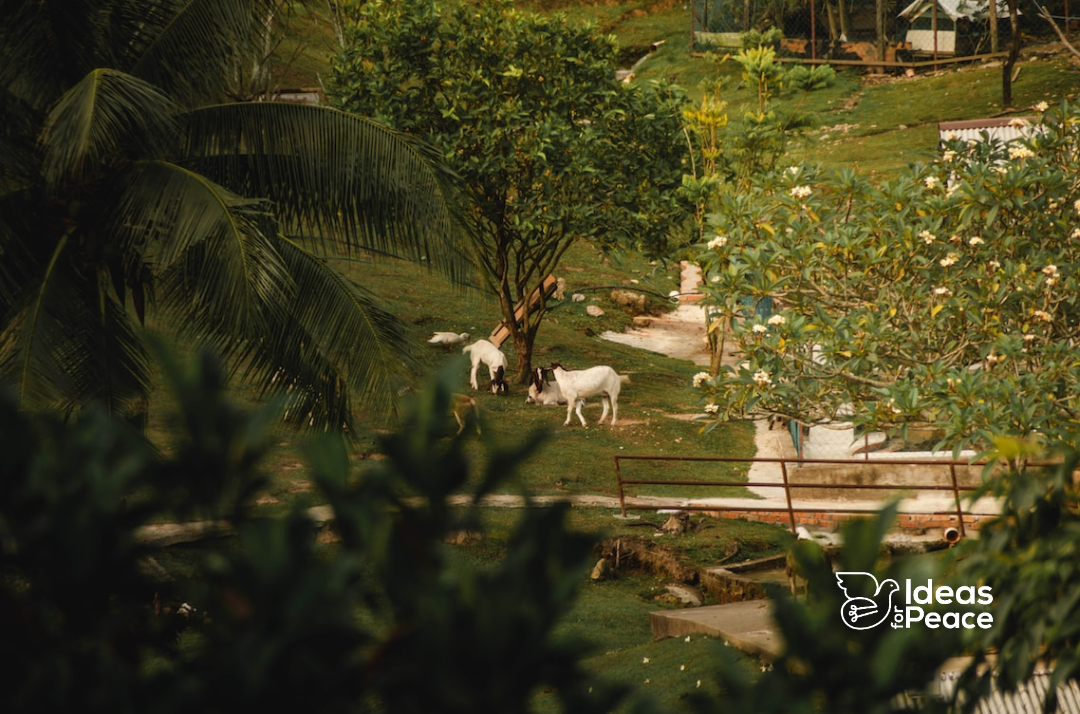Climate change can also be an opportunity to promote more ecological living
Author: Qian Zhang
Satish Kumar (2009) said that we can not save the climate crisis with the same tools and same mindsets which created the climate crisis. The climate crisis is just a symptom; the problem is our attitude toward the natural world – an egocentric worldview (Kumar, 2009).
According to global research, it is found that widespread concerns about the personal impact of climate change (Greenwood, 2022). As the language system about climate change in our current media tends to be negative, some people have concerns about it, and some even have anxiety when they hear related words (Stephanie Collier, 2022).
However, climate change has helped people discover more ecological living from another perspective because it has created environmental consciousness within people’s minds and allowed us to reconnect with nature.
Getting on people’s radar
Before scientists made a global crisis for Climate action, environmental issues were not always on people s radar. In the 1980s, people started to be aware of climate change but with limited knowledge. According to one of the earliest research (2014), Climate change was also often conflated in people’s understanding with localized air pollution. In addition, climate change was a bipartisan issue with many controversial voices due to the misleading media and news (Capstick et al., 2014).
As climate science developed, Climate change was gradually becoming the mainstream issue in our society, concerning everyone regardless of gender, race, or nationalities(Worland, 2017). In 1988, the Intergovernmental Panel on Climate Change (IPCC) was established in cooperation with United Nations Environment Programme (UNEP) to provide scientific knowledge as the base for policymaking (Fawzy et al., 2020). More and more international and local protests showed that climate change had become an unavoidable topic.
Ecological lifestyles
Climate change has brought the importance of nature into public sight, promoting the promulgation of many policies and laws, especially giving environmentalists and related experts a chance to reflect on our current systems and turn to seek more ecological lifestyles.
Although there are various strategies from all areas of society like technology, policies, agriculture, etc, a group of people wishes to trace back to the root cause, as they realize there is no way to combat climate change if we keep the unstoppable desire from humans. Thus, they believe the current system can not bring fundamental change without changing people’s lifestyles.
In 1995, Raskin Paul proposed a new concept called “Ecological Communism” (Raskin, 2010), which showed that ecological communism could be one of six possible future earth scenarios, as it promotes non-material satisfaction and the solidarity between humans and the environment.
After that, ecological communism became popular worldwide and was tried by many practitioners. According to Ecovillage Network (GEN, 2021), at least 10,000 ecovillages exist worldwide, ranging from urban neighborhoods to rural farms. Moreover, as a citizen of China, the author also witnesses many ecological communities arising around the nation, such as Shumi College in Guangdong province, Wuweishe ecological communities in Yunnan province, etc. Many self-organized ecological communities in Latin America are hidden in forests, near lakes in Guatemala, Ecuador, Chile, etc.
A new ecological trend under climate change is getting serious, as many people seek a high spiritual quality of life instead of pursuing luxurious materialism.
Not only by creating or joining ecological communities, but many people are starting with changing small behaviors and actions like recycling water and reducing personal carbon emissions by taking public transportation. Those are signs that people should be aware of climate change’s seriousness and begin exploring new life habits. Even though these are just small pieces of change, they can still create a huge impact.
Summary
So, climate change can bring us a sense of danger and make people reflect on our attitude, change awareness and start actions to bring a new chapter of human lifestyles into our world.
Lista de Referencias
Capstick, S., Whitmarsh, L., Poortinga, W., Pidgeon, N., & Upham, P. (2014). International trends in public perceptions of climate change over the past quarter century. WIREs Climate Change, 6(1), 35–61. https://doi.org/10.1002/wcc.321
Global Ecovillage Network. (2022, July 6). Reports & documents – annual reports, Constitution, bylaws, Core Documents. Global Ecovillage Network. Retrieved May 3, 2023, from https://ecovillage.org/about/reports/
Greenwood, S. (2022, March 22). In response to climate change, citizens in advanced economies are willing to alter how they live and work. Pew Research Center’s Global Attitudes Project. Retrieved May 1, 2023, from https://www.pewresearch.org/global/2021/09/14/in-response-to-climate-change-citizens-in-advanced-economies-are-willing-to-alter-how-they-live-and-work/
Kumar, S. (2009, September 17). Slow Sunday: The simple solution to global warming | Satish Kumar. The Guardian. Retrieved May 3, 2023, from https://www.theguardian.com/environment/cif-green/2009/sep/17/low-carbon-sunday
Raskin, P. (2010). Great transition: The promise and lure of the times ahead.
Stephanie Collier, M. D. (2022, June 13). If climate change keeps you up at night, here’s how to Cope. Harvard Health. Retrieved May 1, 2023, from https://www.health.harvard.edu/blog/is-climate-change-keeping-you-up-at-night-you-may-have-climate-anxiety-202206132761#:~:text=What%20is%20climate%20anxiety%3F,dangers%20of%20a%20changing%20climate.
Worland, J. (2017, July 27). Climate change science politics: From bipartisan to divisive. Time. Retrieved May 3, 2023, from https://time.com/4874888/climate-change-politics-history/
Author Short bio
Qian Zhang is a 2022-2023 UPEACE alumni, studying in the Department of Environment, Development, and Peace. She is strongly interested in Environment Philosophy, Ecological lifestyles, marine ecology, biology, and cultures.
*TODAS LAS OPINIONES EXPRESADAS EN ESTE ARTÍCULO CORRESPONDEN A LA AUTORA Y BAJO NINGÚN MOTIVO PUEDEN CONSIDERARSE CÓMO REPRESENTATIVAS DE LA POSICIÓN OFICIAL DE LA UNIVERSIDAD PARA LA PAZ



